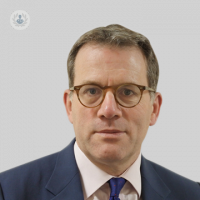How can we make surgery ‘greener’ for the planet?
Escrito por:In this article, we ask revered plastic surgeon, Mr Ian Grant, how exactly we can minimise the environmental effect surgery has on the planet. Read below to find out more.
How can we make surgery ‘greener’?
To avoid a global temperature rise of more than 2°C, all industries need to undergo a transition in order to reduce the potential for greenhouse gas emission. Surgery is a resource-intense activity, it has high energy demands, uses up consumables, produces waste, and demands that patients and staff travel significant distances. Operating theatres have been estimated to have a carbon footprint four to six times greater than other healthcare settings.

Minimising the use of an operating theatre
Not every operation needs an operating theatre. Many procedures such as carpal tunnel release surgery, or the removal of skin lesions can be done in a smaller facility such as a treatment room. This uses less equipment, less energy, and is cheaper.
How can the use of general anaesthesia be minimised?
Giving a patient a general anaesthetic requires the presence of several key members of staff including the anaesthetist, his or her assistant, and a recovery nurse. It requires medical gases, energy demanding equipment, and numerous disposable items. These can all be avoided if the patient has surgery using local anaesthetic.
During the pandemic of 2020, we were able to switch almost all of our hand surgery from general anaesthesia to local anaesthesia. With careful administration of the local anaesthetic, the procedure was no more uncomfortable than a general anaesthetic, as it required a fraction of the resources and allowed patients to leave hospital within about 30 minutes of surgery.
To change their environmental impact surgeons and patients may need to abandon established practice. For example, in breast reduction surgery, there is no evidence that the use of surgical drains (which are disposable plastic items) results in any improvement in detection or prevention of bleeding after surgery. Many surgeons however, still use drains, perhaps reluctant to change an established practice.
Surgery should ideally be performed close to the patient’s home. No one should have to travel large distances to have routine procedures. There needs to be better information available to patients and doctors in primary care allow patients to find care that is local.
It also seems sensible to stagger the arrival of patients in the hospital to avoid the congestion associated with coming in early in the morning for a procedure later in the day. Similarly, the follow-up of patients where possible should be local or should be carried out using video conferencing where possible. There are opportunities to make surgery greener, as well as saving money, and helping to save the planet.
To book an appointment with Mr Ian Grant, simply visit his Top Doctors profile today.


